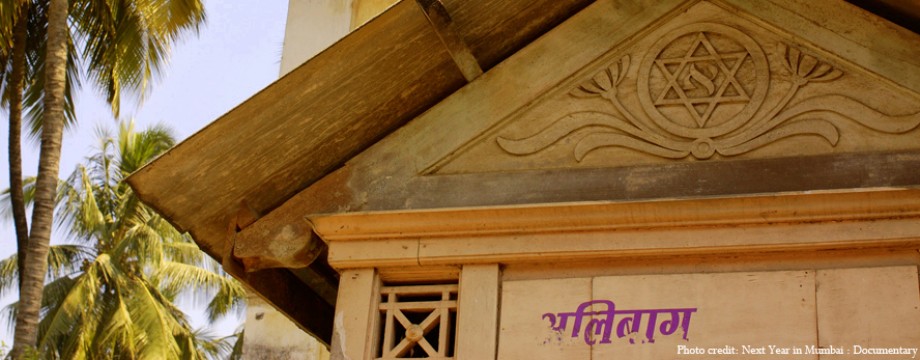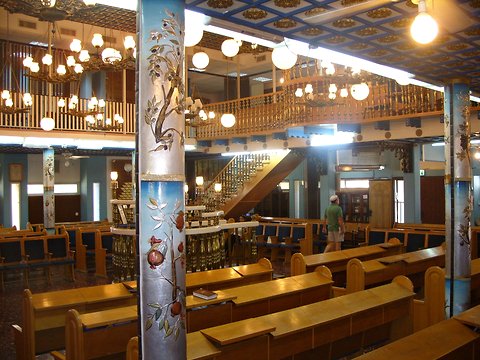On Moshav Nevatim, a dust-blown, palm-tree studded community on the northern edge of Israel’s Negev desert stands a humble little synagogue with an enormous past. The Kerala Synagogue, as it is called, was built in the style of the synagogues of India’s Cochini Jews, a hardy handful of whom settled Nevatim in the 1950s after emigrating from the Indian state of Kerala.
The synagogue has two reader platforms – a unique trademark of Cochini worshipers – as well as traditional wooden benches and electric lights meant to resemble the oil lamps of the synagogues the Cochini Jews left behind.
Some say the Cochini Jews, who were India’s first established Jewish community, came to the subcontinent 2,000 years ago, during the time of King Solomon. Others claim they settled in Kerala after reaching India’s fertile Malabar coast as pepper traders. Today, most Cochini Jews live in Israel, cherishing the relics of their tradition even as each generation grows more and more assimilated.
“Most of the Cochini people do not marry within the community,” said Reut Eliahu, a bubbly 29-year-old Cochini Jew studying for her master’s degree in material engineering. Ms. Eliahu’s boyfriend is an Ashkenazi Jew, meaning his family is of Eastern European descent, but she says her parents never pressured her to date within the community. “I only have one cousin who married a Cochini,” she said. “All of the others married outside, to Ashkenazi, Moroccan, or other Jews.”
Because so many Cochini Jews marry outside the community, it is nearly impossible to pinpoint the precise number living in Israel today. For Tirza Lavi, however, who was born in Kerala and moved to Israel in 1971, at age 13, the lack of data is not an issue. Ms. Lavi volunteers as the curator of Cochin Jewish Heritage Center, also on Moshav Nevatim, while also working as an administrator at Hebrew University and writing her master’s thesis on the Cochin Jews. “I’m working for a living and also studying for my soul, and I’m working at the museum also for my soul,” she said.
Earlier this month, Ms. Lavi joined some 500 other Cochini Jews at a two-day retreat at the Leonardo Hotel at the Dead Sea, the 12th such gathering in so many years. She worked with the Heritage Center to arrange a special photo exhibit for the gathering, which included snapshots of the Cochin community in India before the 1950s and 1960s, when they came en masse to Israel.
“It was very successful for us,” she said of the exhibit. “People love to see their elders or themselves as children, or their fathers or grandfathers.”
At the conference, community members listened to lectures on the history of their people sang ancient Cochini songs and browsed stalls of traditional hand-knitted skullcaps.
Ms. Eliahu’s parents were among the Cochinis who trekked to the Dead Sea, but she chose not to attend. Her identity, she said, is strictly Israeli.
“They came to Israel so long ago,” she said of her grandparents. “We don’t see the connection to India anymore. They came to Israel, and that’s it.”
To see the original source and author of this please go to this URL: http://india.blogs.nytimes.com/2012/04/05/keralas-cochini-jews-meld-into-israel/


